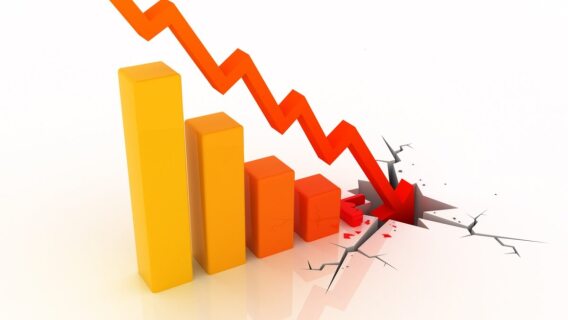A Profound Long-Term Housing Forecast (Baby Boomers: Take note!)
A couple years ago I read a 68-page report by Wall Street analysts on population demographics, lifestyle trends and spending habits that’s projected out several decades. What I read about real estate was so significant – and in line with broad assumptions I’d been making about the next housing crash – that I would be remiss if I did not share it with you.
Let’s first back up a little bit to the approximate year 2005. I was a stay-at-home mom, but always an extrovert, out and about dealing with people each day, keenly aware that middle class Americans were obsessed with fix-n-flip houses, that home prices were skyrocketing, and that no-money-down mortgages had become the financial scam du jour. I was also well aware (and appalled!) that the U.S. government had strong-armed financial companies into making mortgage loans to people with poor credit histories. That was a recipe for disaster, and a race to the bottom ensued with each financial company vying for mortgage business from a large pool of unqualified buyers.
Inevitably, Americans of the home-owning and investment ilk experienced the falling dominoes of real estate, bond and stock prices. The thing that amazed me, though, was that I have rarely met a soul who also anticipated the housing crash. When I talk to investors, they beg me to let them know when I foresee another major drop in housing prices.
[text_ad]
(If you were a little too young or distracted to pay attention to that particular financial disaster, I recommend viewing The Big Short. I’ve learned that it’s not politically correct to announce, “I loved that movie!” at social events, because there are invariably people within earshot who were greatly harmed by the bursting of the housing bubble, and it seems like I’m stomping on their graves. I’m sorry! I understand your pain! The reasons I loved that movie were (a) there are scenes with investment people working together, which, as an extrovert, I greatly miss – yes, I had a career before I was a Mom – and (b) there is a character in the movie who foresaw the housing crash, and I feel a certain awe of and affection for that guy and his brain.)
Now, it’s no secret that housing prices are in the middle of a whirlwind romance currently. The unexpected pandemic has skyrocketed housing prices in a way nobody could predict. Tyler Laundon recently wrote about the white-hot housing market, and the fact that he’s received unsolicited offers on his home, which is not for sale. I’ve heard this from a number of people. Right now is a great time to sell, though not a great time to buy. But these prices are unsustainable. People are simply moving out of the cities as the pandemic has allowed people to work from home indefinitely, and more businesses have closed offices after realizing how many job don’t need to be done in person. Commercial real estate - now that’s another topic.
Let’s talk logistics. It’s 2021 and Baby Boomers are getting older. A tremendous number of them own large homes that they’re having trouble maintaining. I don’t care how healthy you think you are, one serious knee problem and you are not going to be climbing the stairs very often to the second story of your house, or descending stairs into the basement where your washer and dryer are located. You’ll also be hesitant to continue doing outdoor chores: climbing a ladder onto the roof to clean out gutters, pushing a lawnmower around, bending over to pull weeds, raking (ouch - that shoulder injury!).
A vast majority of Boomers will be downsizing in the coming decade, selling the big homes in which they raised children and buying small homes, such as condos with one level and no yard to maintain. Added benefit: they can then extract equity from their big homes with which to finance their retirement years.
All across America, but especially in the Northeast and the Midwest, Boomers will be putting their homes up for sale, and often leaving those areas for warmer climates. (And not to be morbid, but there will also be a subsection of Boomers who die, and their heirs will be selling those homes.)
Are you with me so far? Massive numbers of homes will be going up for sale in the next decade.
The youngest of the Boomers were born in 1964. They’re age 57 right now. The oldest Boomers are 75. And of course, members of the Silent Generation who still own homes are even older. They’re less physically mobile. Their bodies are not cooperating with the basics of living within and cleaning a large home and yard. They’re going to sell their homes.
If you are a Boomer and own such a home, right now you’re probably thinking, “It won’t be a problem. The younger generations will buy homes from the Boomers.” But despite the current market, I would not bother writing about this topic today if demographic projections pointed toward an evenly matched assortment of future buyers and sellers, so take a deep breath and keep reading.
Reasons Behind the Coming Housing Crash
There are a variety of reasons that Millennials and Generation Z are not expected to pick up the slack in the housing market. Off the top of my head, here are some lifestyle situations among those generations that make them different from Boomers, and less likely to purchase houses:
- They’re very comfortable with renting. In fact, they’re expected to push rental occupancy more than 20% higher than historical norms in the coming decade.
- They’re having smaller families. They don’t need a large house in which to raise three or 10 kids.
- They’re burdened with significant college debt that prohibits them from saving for a house down payment.
- They’re burdened with significant rental costs that prohibit them from saving for a house down payment. Current rental prices are more than 50% higher than they were prior to the housing crisis, a decade ago.
- It’s much harder to qualify for a mortgage in this post-housing crisis era. In a gig economy, it can be very difficult for the masses of self-employed workers to meet mortgage lending requirements that demand more predictable income and job stability. (In recent years, I’ve known people who had enough income, assets and FICO scores to qualify for a mortgage or refinance, but they were turned downed because they didn’t have the type of employment history that the mortgage company required. These were normal, educated, middle class people in solid occupations ... the kinds of people who coach kids’ activities, volunteer at church and sit on their local city council.)
- They’re more likely to be single parents at younger ages (an expensive proposition!) and possibly working in retail or lower-level corporate jobs that barely cover rent, transportation and living expenses, let alone health insurance (corporate America took a hatchet to middle management jobs in recent decades, so there are proportionally fewer adults earning those more attractive salaries). Example: A stay-at-home mom who gets divorced has only a small chance of acquiring a job that pays enough to cover rental costs, plus support her kids, plus save for a house down payment. Considering that financial problems are the number one catalyst for divorce, chances are fairly good that a divorced parent with kids is not going to be able to buy a home. The couple was already broke before the divorce! Granted, home ownership can be vastly less expensive than renting, but if you don’t have cash for the down payment, then you’re locked out of the housing market.
Housing takes up much more of a family’s income today than it did when you or your parents bought houses. My father was a newspaper reporter for 36 years. He supported a family of six, and was able to own a home and a car in the 1960s, and two cars by the 1970s. Can you imagine a newspaper reporter supporting a family of six on their salary in 2021?!
PayScale reports, “A mid-career Journalist with 5-9 years of experience earns an average total compensation of $45,583.” If you subtract 15% for income taxes, 3% for charity, $2,000 per month for rental housing, and $1,000 per month for other expenses (college loan, car loan, utilities, food & basic supplies, clothing, gasoline), that leaves $1,378 per year with which to cover retirement savings, technology upgrades, kids’ school & activity fees, medical co-pays, restaurants, entertainment, vacations, gifts, manicures & haircuts, and saving for a down payment for a house. (And that’s assuming that the journalist is provided with health insurance by their employer.)
So you can see that the cost of living for young families in 2021 is very different from the cost of living 50 years ago.
The housing analysis that I read projects home buying volume to be more than 50% below normalized long-term levels in the coming decade. FIFTY PERCENT LOWER! (I don’t foresee this problem being resolved in Year 11. The forecasted suppression in housing demand will likely build slowly and unwind slowly, extending beyond just the next 10 years.)
That means people who sell their homes very soon will get much higher prices for their homes than people who sell their homes later in the coming decade. Home values are projected to steadily fall because there will be a glut of available homes and a lack of qualified buyers. That was a prediction before the current housing market was sparked by the pandemic, and it’s still the case now.
I have always assumed that this downsizing housing shift among Boomers would harm home values, but this report makes it clearer than before to me, and illustrates how bad it might get. If the bulk of your net worth is tied up in your home, and you were planning on selling in order to tap into the equity to sustain you during retirement, you need to understand that your long-term plans might be thwarted by market forces that you had not anticipated.
What are your thoughts? Do you expect a housing crash? Leave a comment below.
[author_ad]
*This post has been updated from an original version, published in 2019.

